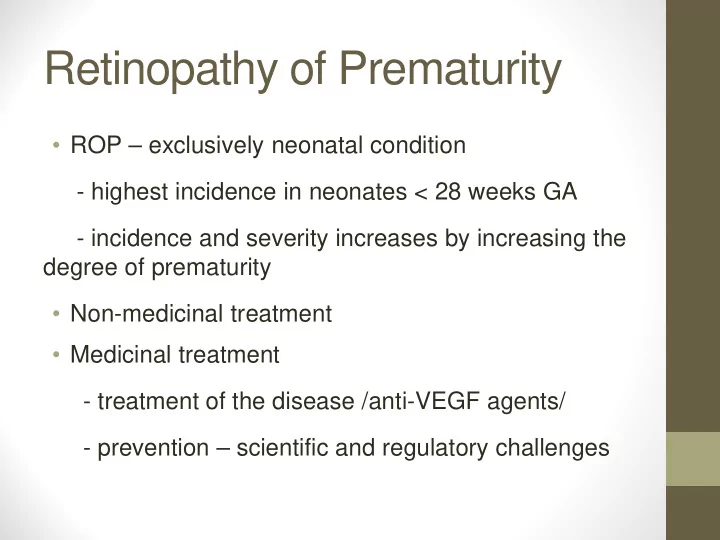

Retinopathy of Prematurity • ROP – exclusively neonatal condition - highest incidence in neonates < 28 weeks GA - incidence and severity increases by increasing the degree of prematurity • Non-medicinal treatment • Medicinal treatment - treatment of the disease /anti-VEGF agents/ - prevention – scientific and regulatory challenges
Research challenges • New trend – prevention of ROP by substitution of hormones dropping after premature birth • Design of CTs for ROP prevention: - not all preterm neonates develop ROP - Type 1 ROP incidence in neonates < 25 w approx. 25%, while in neonates with the GA between 25 and 28 weeks only 2 – 3% - multifactorial condition /degree of prematurity, i/u growth retardation, oxygen supply, gender, concurrent illness, hypoxia/ - validated prediction tool for development of severe ROP not available
Research challenges – points for discussion Inclusion criteria Selection of the target population – universal administation vs population at highest risk Sample size- sufficient and realistic? Study endpoints - ‘qualitative’ vs ‘quantitative’ Safety follow-up – how long? Dose calculation – substitution? Intrauterine levels? Ethical considerations - universal administration- unnecessary exposure? - risk/ benefit assessment
Recommend
More recommend